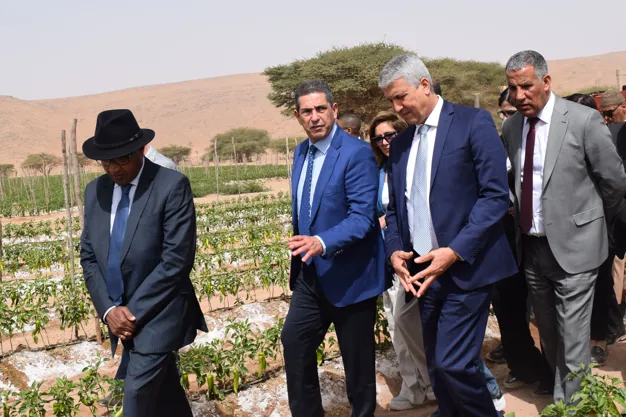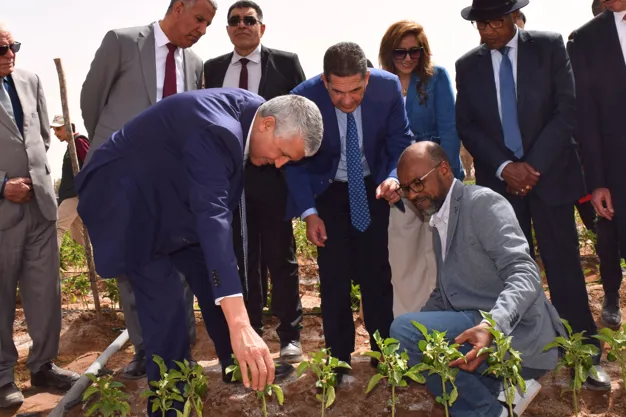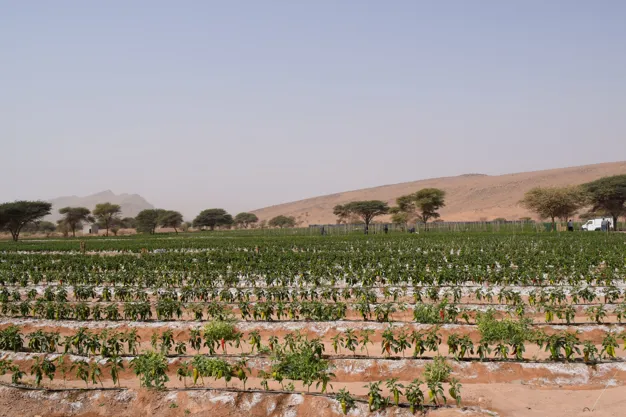How can Moroccan agriculture cope with an increasingly adverse climate? Mohammed Sadiki, Minister of Agriculture, Maritime Fisheries, Rural Development and Water and Forests, during his visit to Tata (south east) this week, stressed the context of violent climate change that Morocco is facing and emphasized the extension of cultivated areas as an essential response to adapt.

"We rely on two essential resources: water and soil"
The minister said, "Morocco's agricultural strategy is based on the implementation of the "Generation Green Plan", the successor to the "Green Morocco Plan". This strategy defines Morocco's vision in the agricultural sector, conceived by His Majesty King Mohammed VI, may God assist him, in 2008. Its essential objective is to lay the foundations for the country's food sovereignty, based on the production and development of all the country's potential in a rational manner, including the essential dimension of sustainability, and therefore the preservation of our resources. And we have two essential resources: water and soil."
Addressing the acute drought the country has been experiencing for several consecutive years, and the extreme temperatures that have disrupted the current season, the Minister says: "Climate change is part of the equation. Morocco is located in a very vulnerable climate zone, where climate change is becoming very rapid and violent, and is directly affecting the agricultural sector. We therefore need innovation and creativity to be able to adapt. We need to do more to increase yields with significantly less water and soil resources."

Towards the extension of production areas
In this context, looking for new production zones is part of the state's urgent response, says Saidiki. He explains, "We're working on a very significant extension of cultivation zones, and we're moving towards areas where there are important niches for developing essential crops such as vegetables, and shrubs that are adaptable and drought-resistant. We're devoting a great deal of effort to modernizing local systems in these areas, with particular emphasis on irrigation efficiency."
"The government's support will continue to go in this direction, to attract producers, especially young investors to the sector," the Minister continues. "The potential is very significant. We've seen some eye-opening success stories, which show us how to produce better while ensuring the long term, and make better use of the cubic meter of water while creating a local dynamic in terms of job creation, and improving the incomes of beneficiaries and producers, laying the foundations for integrated local development because beyond agriculture, entire ecosystems develop around these value chains."

Supply the local market and export
The new production zones offer many advantages, according to the Minister: "Production conditions are ecological, with low input levels and rational use of inputs. For example, these areas are remote from the epidemics that affect crops, which require less treatment inputs. These niche productions are important enough to supply the local and export markets. This is a production method based on the principles of agroecology. It's a buoyant sector, which helps to stabilize the rural world and make it more attractive, especially to the youth."
The minister's visit to Tata sought to launch agricultural development projects. The new farms involve a number of crops, including dates, for which the region is famous, as well as early vegetables for the local market and for export, a first in the province of Tata.
For more information:
Ministry of Agriculture, Maritime Fisheries, Rural Development and Water and Forests
Department of Agriculture
Tel: +212 8 0200 2050
www.agriculture.gov.ma
